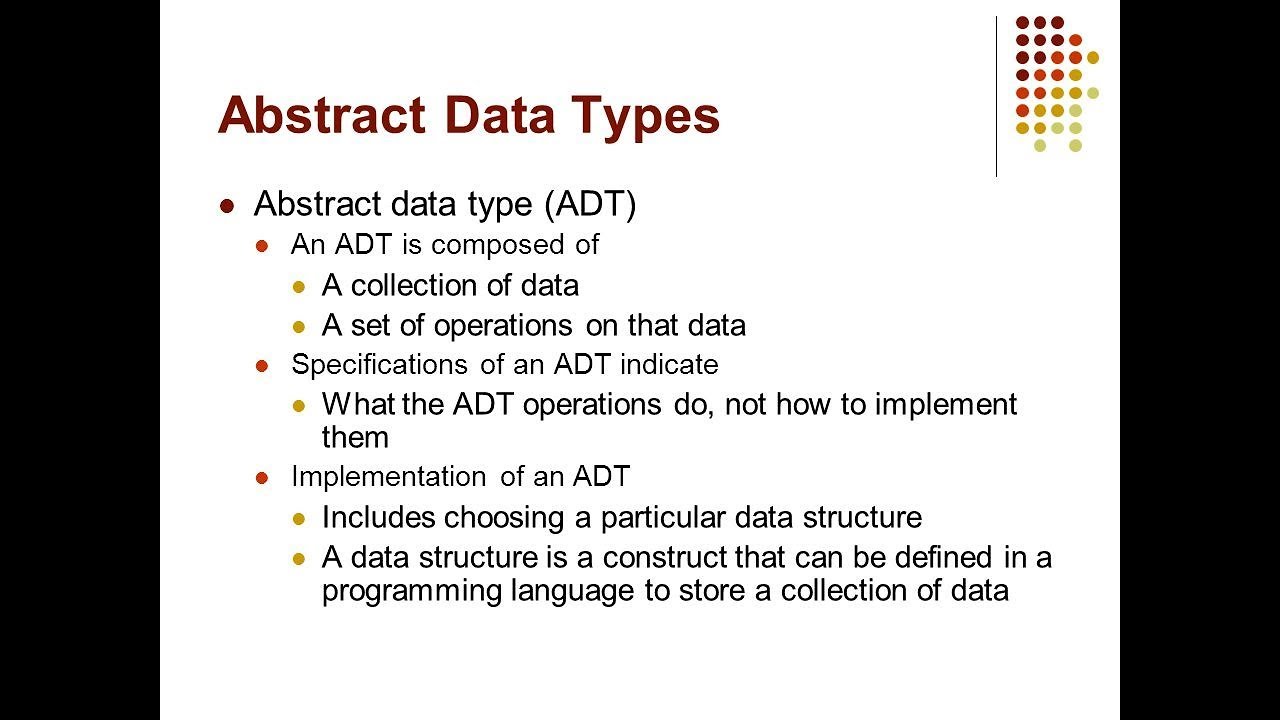Abstract Data Type (ADT) is a type of data structure used in computer programming. It is a logical description of data and the operations that can be performed on that data, rather than the actual representation of the data. An abstract data type (ADT) allows the programmer to define a type of data structure and its associated operations, without specifying the underlying details of how the data is stored or how the operations are performed.
ADTs are frequently used to describe structures that are used in software, such as stacks, queues and lists. By abstracting and encapsulating the underlying data, ADTs ensure that specific details of the implementation remain hidden, allowing developers to change their representation without affecting dependent code.
ADTs are useful because they provide a way of thinking about application data structures independently of specific implementations. For example, when creating a stack, the programmer can think of the stack simply as a collection of objects of a particular type, in sequence, and with certain operations, such as push and pop, without concerning themselves with the specific details of how the stack is implemented. This helps to maintain abstraction, which is essential for code that is reusable and maintainable.
ADTs are also useful for preventing memory leaks by ensuring that all memory is released when it is no longer needed, such as when objects in a collection are no longer referenced from anywhere else.
Abstract data types are used as building blocks for larger data structures, such as trees and graphs, and are key components of programming languages such as C++ and Java.





